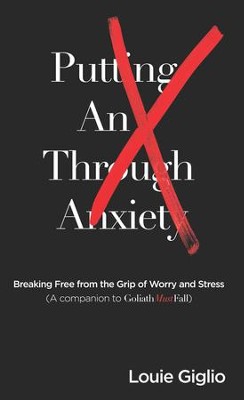The Church and "The Singles"
Description
Marriage is not the ultimate prize.
While I believe all churches should prize marriage and family, I also believe we have to be careful about the unintentional messages potentially conveyed about marriage and family. Both are gifts for this life alone. The one relationship that survives eternally is the one we have as the Bride of Christ to our beloved Savior. The relationships that we all have as brothers and sisters in Christ are the ones that will not end—and these need to be cultivated as much as family life is cultivated. Additionally, single adults need to be reminded that God has not withheld his very best from them if they remain unmarried.
The Singles are actually unmarried men and women.
It’s important that unmarried men and women are discipled as men and women and not a generic lump of singleness. From my perspective, Scripture’s emphasis is on being made a man or a woman in the image of God, with a secondary emphasis on how that looks in the various roles and seasons of life. Unmarried men and women are no less masculine or feminine because of being single.
Single men need leadership responsibilities.
Put 1 Corinthians 7 to work in your churches by showing that the church actually needs unmarried adults who are devoted to the Lord, especially single men. What this looks like will be different in various churches. But when church leaders ask unmarried men to take on significant responsibilities, they demonstrate a belief that godly singleness is a tremendous asset to the Body of Christ.
Single adults are not workhorses.
Conversely, unmarried men and women are not the church’s workhorses. As a new believer, I was in big demand as a new babysitting resource in the church. While I was thrilled to get to know so many families, one wise woman saw the burnout coming. She advised me to pray and ask God which of these families he was asking me to invest in. By knowing those relationships where I was to say yes, I knew also where I could say no without guilt.
Years later, when the speaking invitations started to roll in after the publication of my first book, my pastor saw where I could be driven by an open calendar. He suggested I create an advisory board to help me evaluate my invitations and schedule. The goal of the advisory board was to make sure I was not traveling too much. Even though I am unmarried, I still need to make my home and my home church priorities. I need time to receive care from close friends and also to return that nurturing.
Understand the challenges of endless opportunity.
One wise pastor once told a group of single adults that he was sympathetic to the challenges of endless opportunity. Because he was a pastor, father, and husband, the boundaries of his day were fairly well-defined from the moment he woke up. He knew his responsibilities and the priorities given to him by God, and he didn’t have to spend a lot of time deciding what he was supposed to do.
But single adults can think they don’t have those same clear priorities and can be tempted to drift through their days. But we actually do have many of the same boundaries and priorities in working faithfully as unto the Lord, in building up our local churches, in reaching out to non-Christians, in praying for others, in caring for the family members and friends we have (especially as single parents), in offering hospitality, and so forth. Though some of the most intimate relationships may be different, we all share a basic set of priorities and we often need to be reminded of that.
Single men trust God by risking rejection and single women trust God by waiting on him.
It’s all about trusting God’s good provision for our lives. Encourage single men and women to read Ruth. Not because it’s a matchmaking book (it’s really not), but because we all tend to be like Naomi. We survey our circumstances and think we know exactly what God is doing. . . or not doing. But we simply have no idea that He is doing more than we can ask or imagine. His quiet providence is on display everywhere and an eagerness to look for that and praise him for it cultivates gratitude.
Don’t be afraid to challenge bitterness.
Extended singleness is a form of suffering. There is an appropriate time for mourning with those who mourn. This is especially true for women who see the window of fertility closing on them without the hope of bearing children. Don’t minimize the cumulative years of dashed hopes for unmarried adults.
That said, we single adults need loving challenges when we have allowed a root of bitterness to spring up and block our prayers to God, our fellowship with others, and our service to the church. Deferred hopes cannot be allowed to corrode our thankfulness for the gift of salvation.
It’s not self-improvement, it’s others-improvement.
Too often our advice to unmarried adults stems from worldly thinking that infects us all. We give advice to improve and equip the unmarried adult to attract better relationships, rather than reminding them they are stewards of whatever relationships they have been given.
While it’s true that there are things every adult can do (married or not) to be more attractive in myriads of ways, there is no guarantee that a trimmer figure, a more confident conversational style, or a better job will be worthy of an eternal reward. However, if we think of each individual who crosses our paths as a beloved sister or brother in the Lord about whose care and treatment we will give an account to Jesus one day—this radically alters everything.
It means dating is no longer a zero sum game that results in a littered landscape of broken relationships and cut-off communication. It’s not whether boy gets girl. It’s whether we can look Jesus in the eye and say, “Thank you for the time you gave me with this person. I did my best to encourage and pray for this individual while I knew him/her. I loved without fear of loss because I wanted to be like you. So by your grace, I did my very best to build up this man/woman and return him/her to you with thanks for the gift of this relationship.” Because even if we get married, that’s also what we have to do for our spouses.
As John Piper wrote in This Momentary Marriage, "The meaning of marriage is the display of the covenant-keeping love between Christ and his people." Though it is not on display in exactly the same way in the lives of unmarried adults, we are part of the Bride of Christ and recipients of his faithful covenant love. Therefore, how we care for others who are also Christ's beloved speaks volumes to a watching world, to the praise of his glory.
 Overcome challenges with guided prayer, journal prompts, and God’s wisdom using iDisciple Growth Plans.
Overcome challenges with guided prayer, journal prompts, and God’s wisdom using iDisciple Growth Plans.

-12.png)








